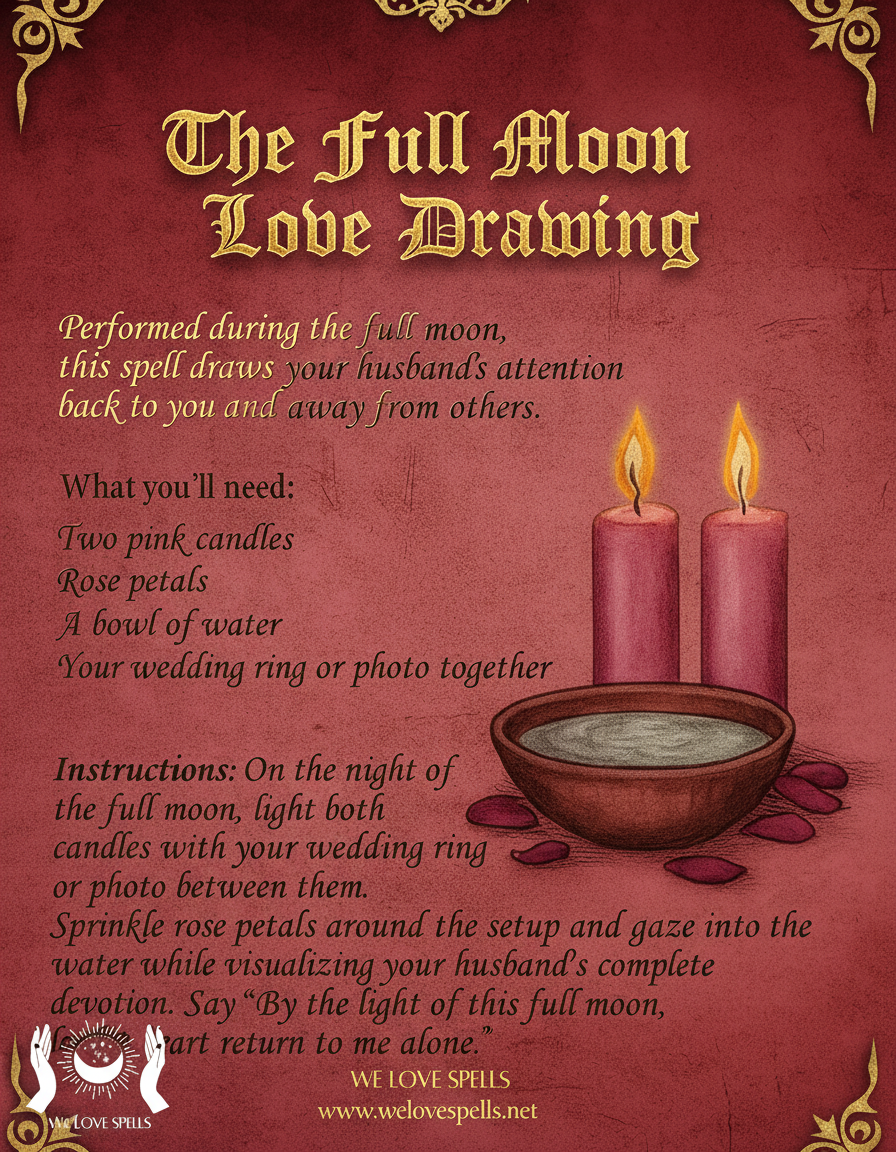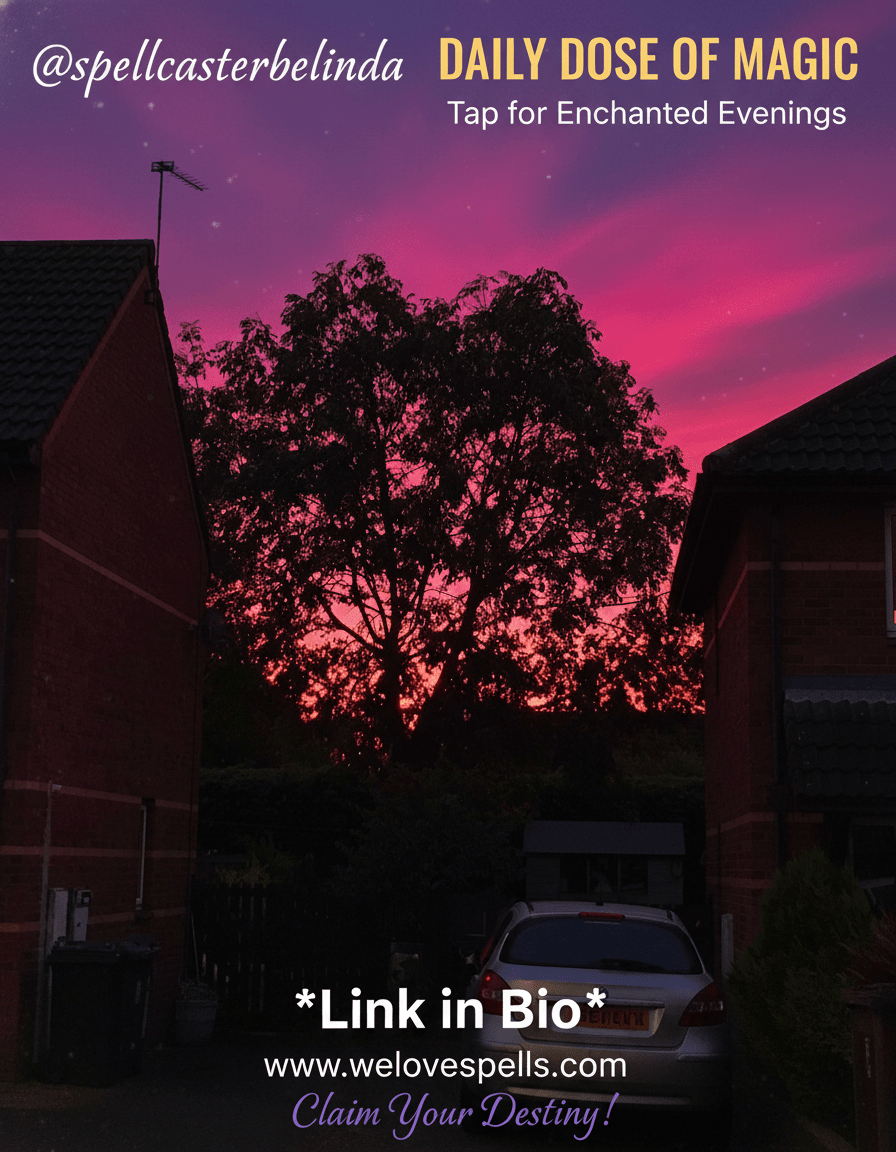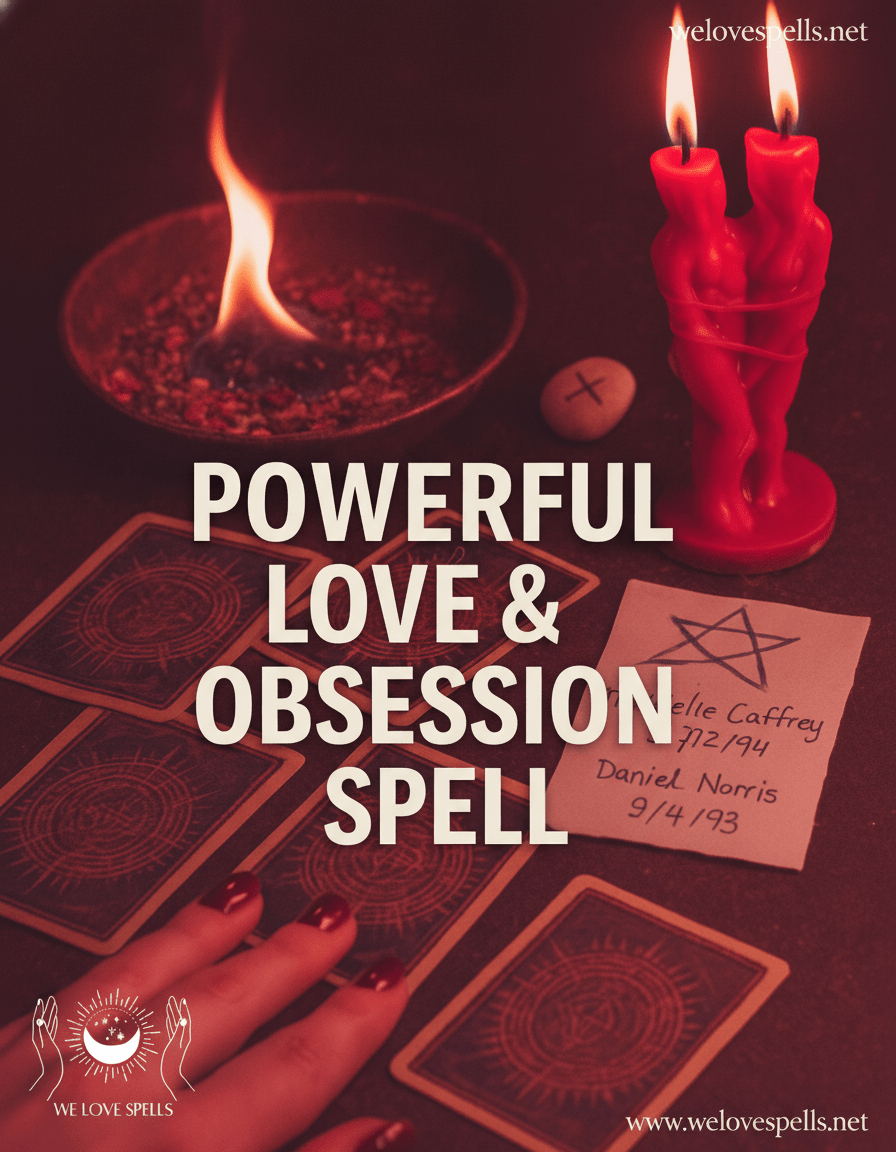Exploring the World of Witchcraft: Debunking Misconceptions and Embracing the Wiccan Way
How Do Love Spells Work?
- Witchcraft blends ancient traditions with modern practices to help you manifest love, healing, and positive change.
- Love spells channel spiritual energy and intention, often using candles, herbs, crystals, and affirmations for focused results.
- Modern witchcraft, including Wicca, is based on nature, respect, and personal empowerment—not fear or superstition.
- Ethical principles like the Wiccan Rede guide practitioners to use magic responsibly and with clear intent.
- Discover how spells, rituals, and psychic guidance can restore relationships, attract romance, and transform your life.
- Learn from real testimonials, actionable how-to steps, and expert insights from a 20+ year spellcasting veteran.
Unlocking Modern Witchcraft: Ancient Magic for Love, Healing & Empowerment
Witchcraft—rooted in the wisdom of nature and spiritual balance—has evolved into a respected, diverse practice. Whether you’re drawn to Wicca, manifestation rituals, or powerful love spells, witchcraft offers a path to harmony, self-growth, and lasting love.
Millions around the globe now embrace magical rituals and spellwork to attract love, deepen relationships, and seek guidance from both ancient deities and modern psychic experts. In this guide, you’ll discover the secrets of love spells, the core beliefs of Wicca, and practical steps to cast spells for your own romantic journey.
Ready to change your destiny? Shop Real Love Spells That Work Today
Essential Beliefs of Witchcraft & Wicca
At its core, modern witchcraft and Wicca celebrate the rhythms of nature. Practitioners—known as Wiccans or witches—honor the moon’s cycles, sacred Earth, and dual energies of Goddess and God. Rituals often focus on wisdom, empowerment, and the transformation of love and relationships.
Most Wiccans work with both masculine and feminine spiritual forces, inviting balance through ceremony and spellwork. Love manifestations—like the Spell to Make Yourself Irresistible—call on natural energy to attract or strengthen affection.
The Wiccan Rede: The Heart of Magical Ethics
A foundational law in Wicca, the Wiccan Rede states: “An it harm none, do what ye will.” This simple guidance shapes every spell, ritual, and relationship choice.
- Personal Responsibility: Every practitioner owns the energy and intent they send out into the universe.
- Respect for Free Will: Ethical spellwork—such as Love Binding Spells—must never breach another’s autonomy.
The Art of Magic: Spellcasting, Love Rituals & Divination
Witchcraft merges spirituality with hands-on magic. Rituals often use candles, crystals, tarot, and herbs to attract love, healing, or abundance. Preparation through meditation and visualization is crucial, helping you focus your intent before spellwork.
Divination techniques—like tarot readings or scrying—help guide your actions and unlock clarity, especially in matters of the heart or reconciliation.
 The ritual tools of witchcraft—candles, crystals, and cards—focus energy in every love spell.
The ritual tools of witchcraft—candles, crystals, and cards—focus energy in every love spell.
Breaking the Myths: What Witchcraft Really Is
Despite rapid growth—over 1 million practitioners in the US alone—witchcraft is often misunderstood. Some confuse it with dark magic or devil worship. The truth? Wicca and modern witchcraft oppose harm, promote peace, and energize the pursuit of love, health, and spiritual clarity.
– Sara M., Wiccan Practitioner
Frequently Asked Questions About Witchcraft & Love Spells
-
What is modern witchcraft?
Modern witchcraft is a spiritual path honoring nature, ancient wisdom, and personal empowerment through rituals and spellwork. Wicca, its most recognized form, embraces the cycles of earth, moon, and changing seasons. -
Can love spells help repair relationships?
Yes, ethically cast love reunion spells and reconciliation spells are designed to attract positive energy and restore loving bonds without manipulating free will. -
How do I start practicing witchcraft?
Begin by learning from reputable books, joining online communities, and exploring safe, guided spells. View our Love Spell Collection for practical ideas. -
Do I need a coven to cast spells?
No, many witches practice alone, using solitary rituals and spells—though covens offer mentorship, support, and tradition. -
Are spells harmful or risky?
When performed with pure intent and respect for the Wiccan Rede, spells are safe and empower personal growth. Avoid manipulative curses or any magic that seeks to control another.
A Brief History: Witchcraft’s Roots & Renaissance
Witchcraft evolved from ancient herbal healers and wise folk—guardians of love and health in their communities. Over time, misunderstanding led to persecution, but the 20th century sparked a revival, leading to today's vibrant Wiccan and magical world.
Modern traditions include Gardnerian, Alexandrian, and Dianic Wicca, along with countless eclectic paths that blend global wisdom.
Witchcraft’s Many Paths: Key Traditions at a Glance
| Tradition | Description |
|---|---|
| Gardnerian Wicca | Structured, coven-based; founded by Gerald Gardner, featuring formal rituals and hierarchy. |
| Alexandrian Wicca | Mystical fusion of Gardnerian basics and ceremonial magic, created by Alex Sanders. |
| Dianic Wicca | Feminist, goddess-centered, and inspired by empowerment, healing, and women's mysteries. |
Witchcraft also thrives as eclectic practice: each person crafts a unique path blending ancient techniques with personal intuition.
How Magic & Manifestation Transform Love & Life
Contrary to movies, magic in witchcraft uses focused intention, rituals, and sacred tools to create real change. Many use Lust for Me Love Spells or Attract Your Soul Mate Spells to draw love and spark passion.
- Love Spells: Manifest romance, repair old wounds, or inspire new relationships.
- Cleansing Rituals: Remove negative influences, as in our Cleansing Spell.
- Divination: Find relationship clarity with tarot, pendulums, or psychic readings.
Practicing magic is ultimately about aligning with universal cycles for lasting happiness and connection.
A Global and Ever-Evolving Spiritual Art
Witchcraft is not exclusive to any one culture. Across the world, variations thrive—each honoring love, balance, and ancestral wisdom. From African tribal rituals to European coven circles, modern witchcraft adapts to every seeker, everywhere.
 Witchcraft ceremonies celebrate unity between people and nature, throughout the world.
Witchcraft ceremonies celebrate unity between people and nature, throughout the world.
Sacred Circles: Rituals of Connection & Love
Ritual is central to every witchcraft and love spell. Sabbats and moon rituals celebrate life’s cycles. When casting spells—like the Reconciliation Love Spell—practitioners often create a consecrated, protected circle to amplify intention and channel energy. Sacred space ensures your desires are heard by the universe.
Covens, Community & Solitary Practice in Witchcraft
Covens provide structured training, support, and lifelong bonds. Yet, many witches discover the magic of love and transformation as solitary practitioners, guided by intuition and online resources.
- Shared wisdom and mentorship for beginners and experienced spellcasters
- Celebrations and structured initiations that foster belonging and accountability
- Lifelong friendship and emotional support—online and in person
– Jasmine R., Love Spell Seeker
Rituals in the Digital Age: Witchcraft Meets Technology
Modern magic blends seamlessly with technology: from lunar apps for spell timing, to online tarot readings and digital grimoires. Connect, learn, and celebrate with other practitioners worldwide—wherever you are.
- Connect globally: Network, share insights, and join virtual sabbats.
- Access instant wisdom: Explore blogs, ebooks, and live video spells.
- Streamline practice: Keep digital journals, spell logs, and sacred images handy on your phone.
Practicing with Integrity: The Ethics of Real Magical Work
Ethical harmony and ecological responsibility are at the foundation of Wiccan magic. Every practitioner is urged to clarify intentions, respect others’ free will, and avoid harm. Choosing sustainable herbs, crystals, and resources honors both the Earth and spiritual law.
- Always seek the highest good of all involved
- Never manipulate or force love
- Source ingredients ethically and honor the Earth’s gifts
Take Your Practice Further: Books & Resources
- The Spiral Dance by Starhawk – A foundational journey into witchcraft and the magic of love
- Wicca: A Guide for the Solitary Practitioner by Scott Cunningham – The must-have for independent practitioners
- Wicca.com – Expert wisdom, rituals, and spell guidance
- The Wild Hunt – The latest Pagan and Wiccan news
Going Deeper: Sabbats, Sacred Feminine, & Soul Healing
Wheel of the Year: Magic in Every Season
The Wheel of the Year marks eight key Sabbats—Yule, Imbolc, Ostara, Beltane, Litha, Lammas, Mabon, and Samhain. Each one is an opportunity for love spells, abundance rituals, and inner healing.
The Divine Feminine & Relationship Empowerment
Witchcraft shines a light on the divine feminine. Many rituals include goddess invocations, driving confidence, wisdom, and a deep sense of self-love for any gender. Try an Attract Your Soul Mate Spell to embrace new romantic energies.
Eco-Conscious Magic
Wicca’s spiritual law is rooted in caring for the planet. Choose sustainable, ethical ingredients for spells; dedicate your ritual energy to environmental healing and protection.
Witchcraft in Pop Culture—And What’s Real
While stories from “Macbeth” to “Harry Potter” inspire curiosity, real magic is based in compassion, ethics, and the deep bonds we build with the world around us.
Love Spells for Healing Heart and Home
Turn to rituals for mending broken hearts or reigniting lost love. Consider the popular Bring Back Lost Lover Love Spell or a Healing Relationship Spell to restore trust and passion.
– Liam D., Happy Client
Your Burning Questions, Answered
-
What basic tools are used in love spells?
Common tools include ritual candles, herbs, crystals, chalices, athames (wands or daggers), and symbolic talismans—all enhancing focus and intention. -
What is divination, and how does it guide my love life?
Divination uses tarot, runes, or scrying to provide insight, clarity, and guidance for relationship decisions and spellcasting. -
Can anyone use love spells, or do I need special training?
Anyone open to learning can practice safe, responsible spellwork. Beginners should start with simple Love Attraction Spells and only use reputable sources. -
Are there many different branches of witchcraft focusing on love and relationships?
Yes—Gardnerian, Alexandrian, Dianic, eclectic, and more. Each tradition brings unique methods for love and healing. -
Where can I get authentic love spells and ethical advice?
Shop our Love Spell Collection online for real, tested enchantments, or contact our expert spellcasters for guidance.
Conclusion: Claim Your Power, Shape Your Love Story
Witchcraft is more than casting spells—it’s a way to heal, attract true love, and nurture your spirit. Whether calling for a new romance, mending a broken heart, or awakening self-worth, the path of magic brings hope to everyone who believes.
Don't wait for destiny—create your own fairy tale. ✨ Get Your Spell Cast by the Best Love Spellcaster in the World
Belinda is a professional witch, Wiccan high priestess, and certified love spellcaster with over 20 years of experience in magical rituals, spiritual guidance, and helping people manifest true love and healing. Belinda’s approach is grounded in ethical, responsible spellwork and the wisdom of nature. She is dedicated to empowering others and providing real results for seekers worldwide. For private consultations or custom spellcasting, visit our Contact Page.



